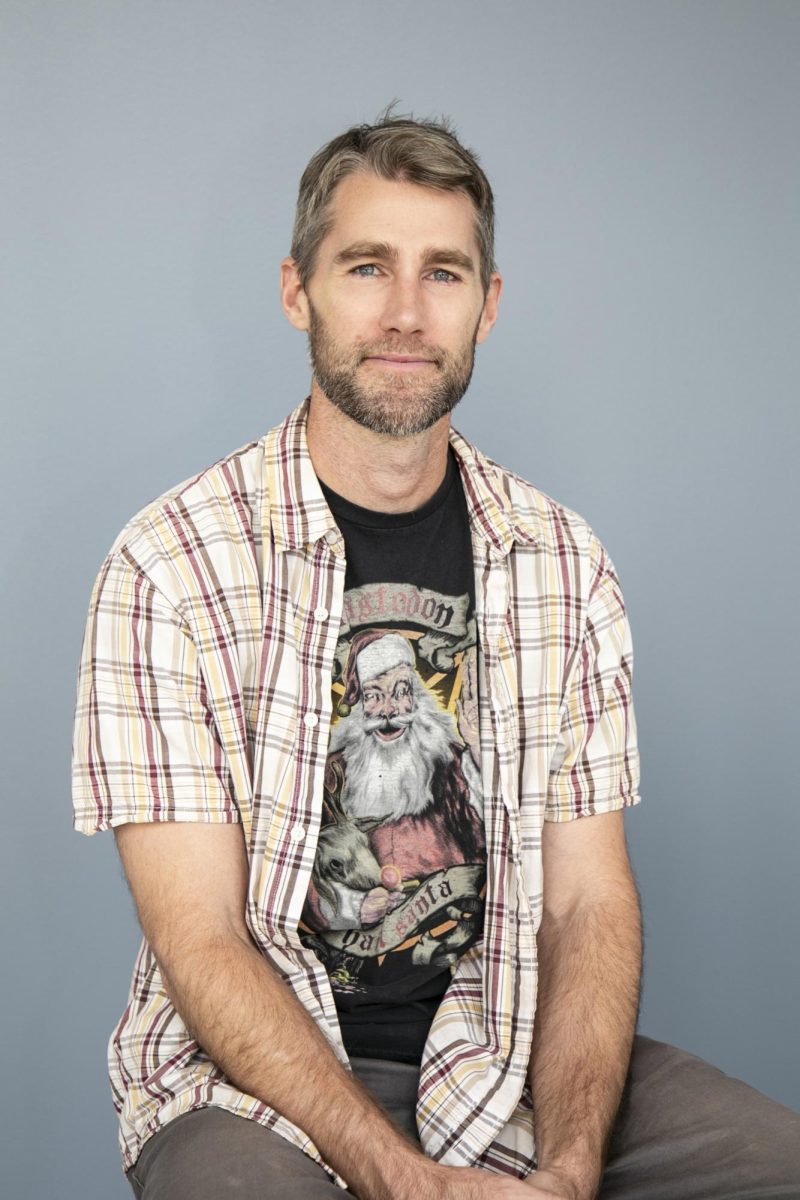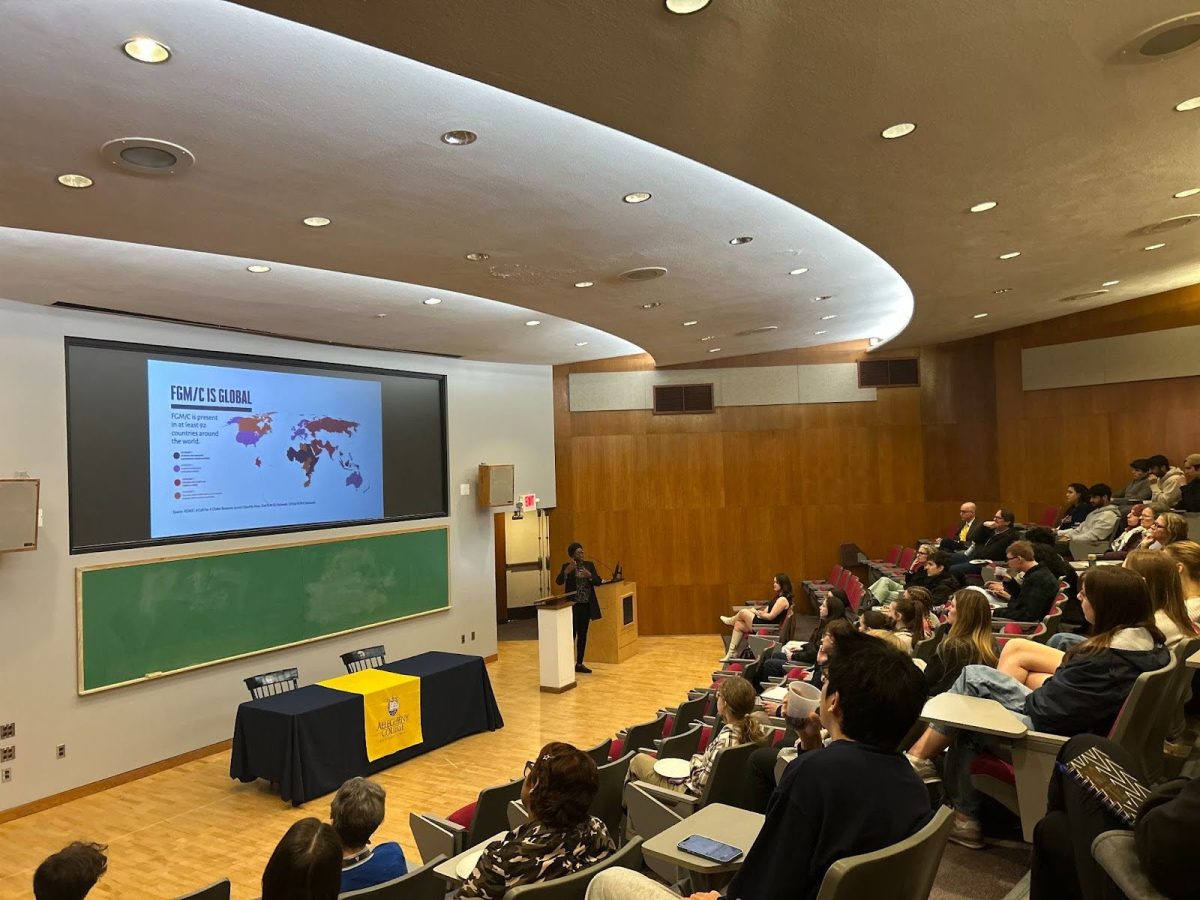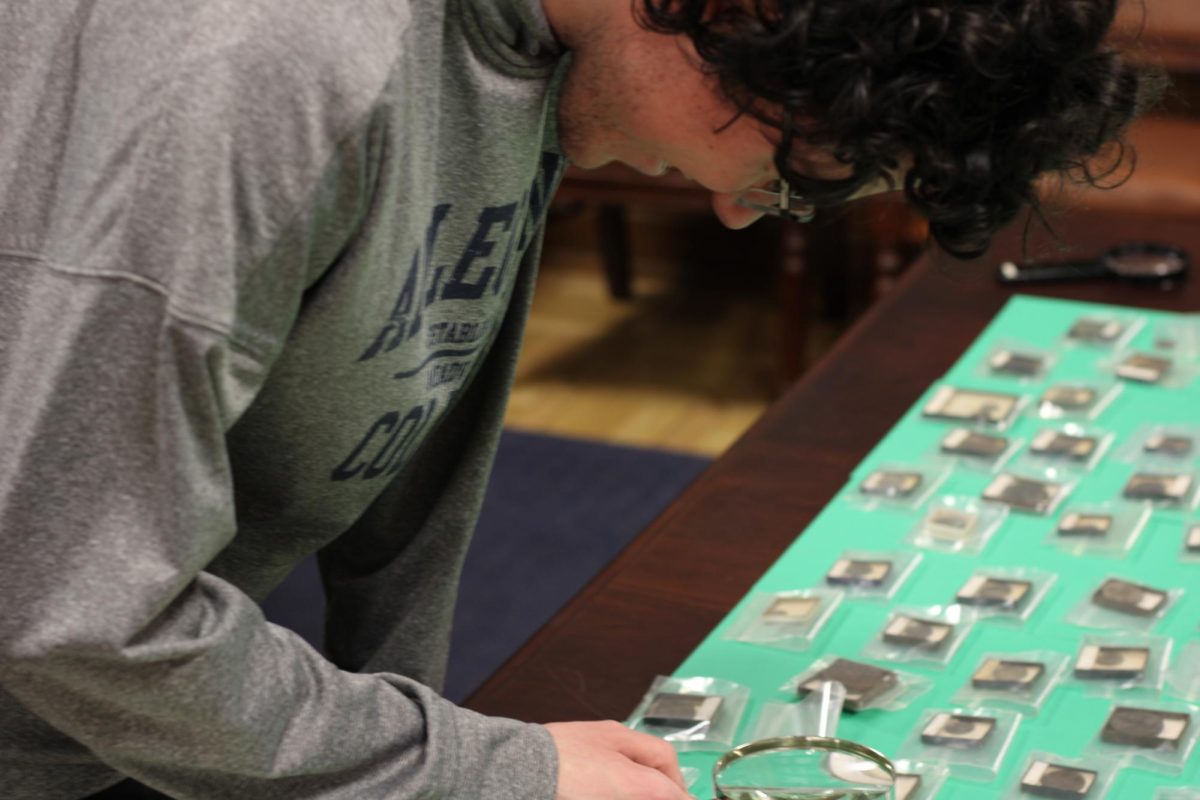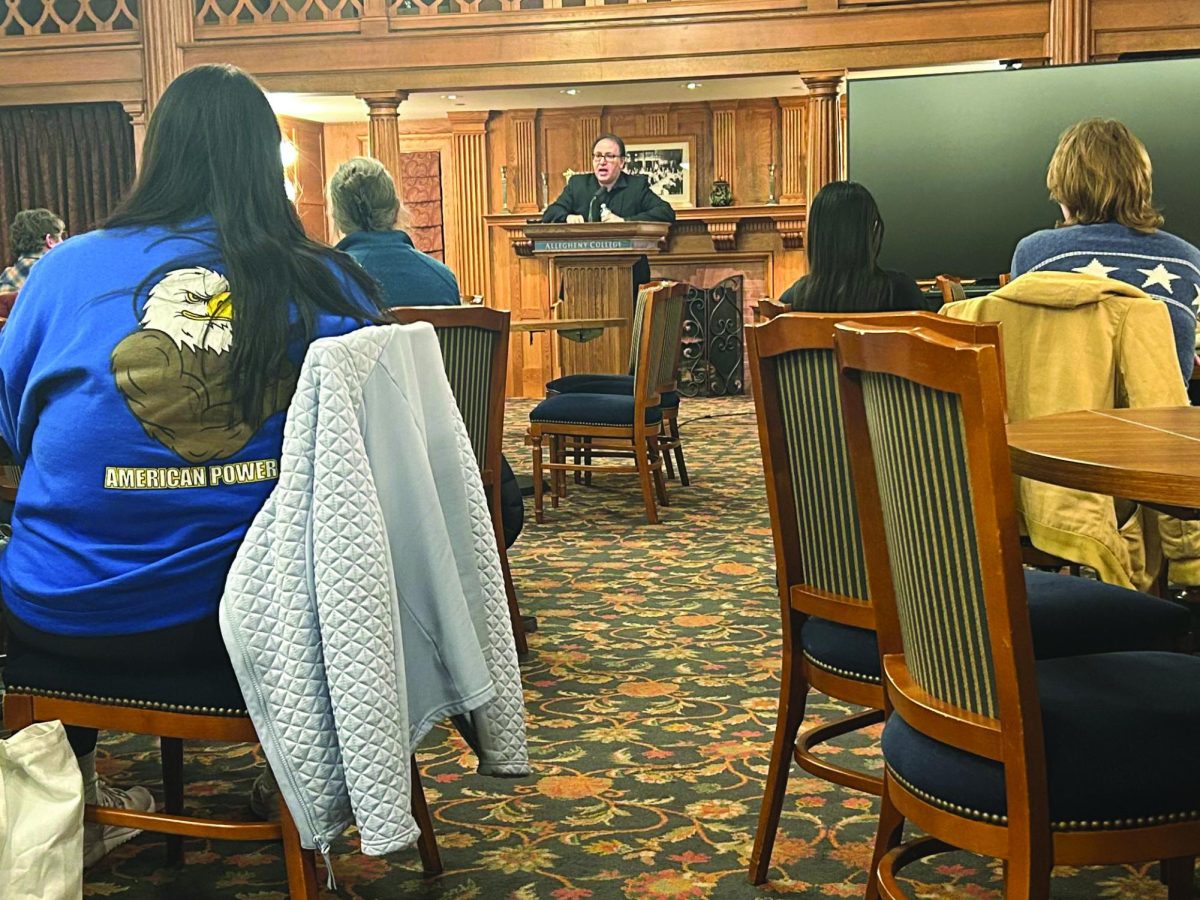What is one piece of advice you’d give to those who wish to take a communication and media class at Allegheny?
Studying media and communication gives us a framework for understanding the world in which we live. We live in a media-saturated world. We’re always looking at screens — you’re probably reading this on a screen. Media and communication studies gives us a framework to critically examine the images, information and stories that constantly come at us in the media, whether in the form of news, entertainment, or social media posts. They shape how we see things. If you’re curious about this — about the ways media influence us — take a media studies class.
Personally, I’m interested in media because I’m interested in social and political questions. That’s why I teach media studies. Because our ability to understand politics, culture, and society depends on studying media. At this point, you can’t separate them. Some people study media because they’re interested in particular media forms, like film or TV or Instagram. But I’m less interested in specific media than the bigger questions about politics, power and society. I’m interested in — and teach about — the structures that determine our world and our lived experience.
What made you fall in love with communications and media studies?
I like the fact that we ask “big questions” in communication and media studies. One of the things I always stress in teaching is that the world we live in is a constructed world; it’s been created by human beings. There is no “natural” way the world should be. There is only the way it’s been constructed. So the questions we should ask are: constructed by who? To what end? In whose interest?
When you’re talking about communication, you’re ultimately talking about power, because communication is always about representing the world, and we’re always representing the world in a particular way. Sometimes these representations take on the power of normality; they’re made to seem “natural.”
But communication and media studies gives us tools to de-naturalize what we take for granted as normal and natural — whether it’s stories about identities, politics, economics, the environment, etc. For instance, education is usually represented in terms of training people for jobs. But that’s a very limiting representation, and it serves particular interests. To me, the point of education is more profound; it’s about providing people with the conceptual tools they need to see the world in different ways, so that we’re able to act and change the world, to envision alternatives.
What has your career journey looked like? What is one piece of advice you’d give to your past self?
Something I tell every advisee is don’t worry about the job. Don’t structure your time at Allegheny according to the job market, or what you think will get you a job after graduation. I know students are pressured by parents and even college staff to think this way. But ultimately, what matters when it comes to the job is not the major or specific courses; it’s the degree. So spend your time at Allegheny finding out what you’re interested in intellectually. Experiment! Take courses you might not otherwise. You’ve got four years to experiment with ideas before you’re going to be thrust into the job market. Take advantage of it. Spend your time pursuing your own intellectual interests. The job will come. I never planned on this job when I was an undergraduate. I didn’t have a career plan. None of my friends did. And we turned out fine. The sky didn’t fall. You shouldn’t approach your time at Allegheny in terms of CV-building; you should approach it in terms of broadening your perspective and learning new ideas about what’s possible.
Anything you want students at Allegheny to know about you, your department, or anything else?
We’re a big department. We also house Theatre, Dance and Movement Studies, and Filmmaking — areas that equip students with resources to express themselves artistically and politically. But overall, I’d say we’re probably the only department that spends the bulk of our time analyzing the ways media and culture tell us we’re supposed to think — what we call ideology. If you’re interested in studying ideology, or if you suspect something is wrong with the world and want to develop a critical vocabulary for understanding why, check us out.








